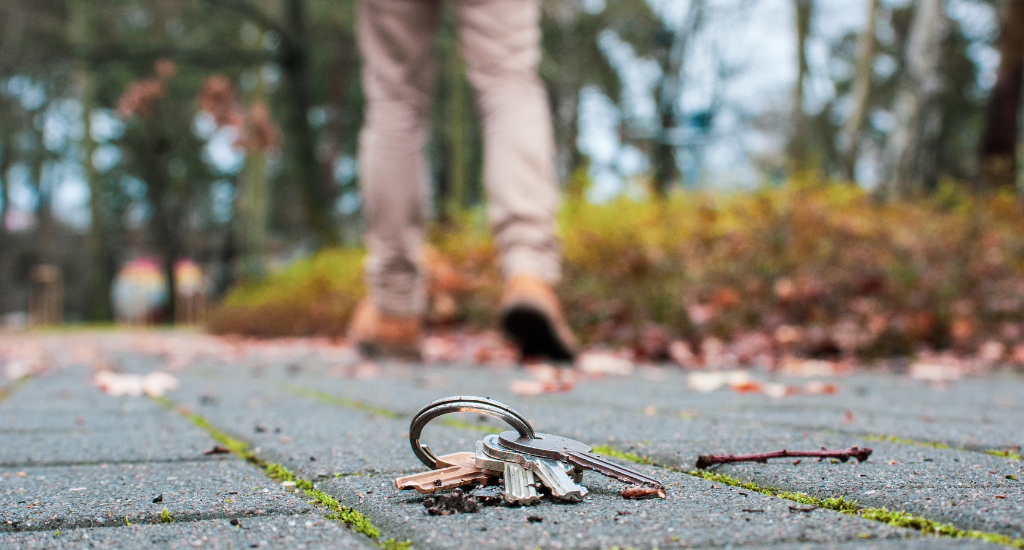Losing your keys can be one of life’s most frustrating experiences. It often happens at the worst possible moment, when you’re rushing to leave the house or when you’re already running late. In these moments, it’s easy to feel overwhelmed and panicky. However, there are effective strategies for finding your lost keys and preventing future mishaps. In this article, we will explore these techniques and offer practical advice to help you avoid the stress of lost keys.
Understanding Why Keys Get Lost
Before diving into key-finding strategies, it’s essential to understand why keys tend to get lost in the first place. By recognizing common scenarios and psychological factors, you can develop a better sense of how to prevent key loss.
Common Scenarios Leading to Key Loss
| Hectic Mornings | Mornings are often chaotic, with multiple tasks vying for your attention. It’s easy to misplace your keys in the rush to get out the door. |
| Distractions | Everyday distractions, like incoming phone calls or a crying child, can cause you to forget where you put your keys. |
| Misplacement | Sometimes, keys simply end up in the wrong place due to absentmindedness. |
Psychological Factors Contributing to Key Loss
| Stress | High-stress levels can impair your memory and focus, making it more likely for you to misplace your keys. |
| Forgetfulness | If you have a habit of forgetting where you put things, your keys are at a higher risk of being lost. |
| Lack of Organization | Disorganized living spaces increase the chances of losing keys amid clutter. |
Prevention and Preparation
The best way to deal with lost keys is to prevent it from happening in the first place. Here are some proactive measures you can take:
Establishing a Designated Spot for Keys
Designate a specific location for your keys, such as a key hook near the door, a bowl on a table, or a drawer in a cabinet. Make it a habit to always place your keys there when you’re at home.
Developing a Routine
Create a daily routine that includes checking for your keys before leaving the house. This simple habit can significantly reduce the chances of leaving them behind.
Spare Key Strategies
Consider having spare keys in safe and accessible places:
- Give a spare key to a trusted friend or family member who lives nearby.
- If you prefer not to involve others, use a secure outdoor lockbox or a hidden magnetic key holder near your entryway.
Immediate Actions When Keys Are Lost
Despite your best efforts, keys can still go missing. When this happens, it’s crucial to remain calm and take immediate action:
Stay Calm and Composed
Panicking won’t help. Take a deep breath and remind yourself that you will find your keys.
Retrace Your Steps
Start by mentally retracing your steps. Think about where you last had your keys and what you were doing at the time.
Check Common Locations
Common key hiding spots include pockets, bags, countertops, and furniture. Be thorough in your search, and don’t overlook any potential locations.
Utilizing Technology
Modern technology offers solutions for key tracking:
- There are apps available that can help you locate your keys using Bluetooth technology.
- Attach a Bluetooth tracker to your keyring. These devices can be paired with your smartphone to help you pinpoint your keys’ location.
Organizational Strategies
Maintaining an organized living space can significantly reduce the chances of losing your keys:
Decluttering Your Living Space
Regularly declutter your home to minimize hiding spots for your keys. A tidy space is easier to search when needed.
Implementing a Key Management System
Consider investing in a key management system, like a wall-mounted key organizer or a labeled key rack. This system will keep your keys in one place and easily accessible.
Labeling Keys
Label your keys with clear, easy-to-read tags. This simple step can save you time when searching for the right key.
Using Keychains and Accessories for Visibility
Attach a distinctive and easily recognizable keychain or accessory to your keys. This not only adds a personal touch but also makes your keys more visible.
Enlisting Help
When all else fails, don’t hesitate to seek assistance:
Seek Assistance from Family or Roommates
If you live with others, ask if anyone has seen your keys or if they might have moved them.
Contacting Professionals (Locksmiths)
If you can’t find your keys and need access to your home or vehicle urgently, consider contacting a locksmith.
Community Support (Social Media, Neighborhood Groups)
Use social media or neighborhood groups to post about your lost keys. You might find helpful tips or even kind neighbors willing to assist in your search.
What to Do When Keys Remain Lost
Sometimes, despite your best efforts, your keys may remain lost. In such cases, it’s important to take these steps:
Assess the Urgency
Determine the urgency of the situation. If your keys provide access to important places or possessions, it may be necessary to take immediate action.
Rekeying or Replacing Locks
If you can’t locate your keys and they provide access to your home or valuable assets, consider rekeying or replacing locks to maintain security.
Updating Security Measures
Learn from the experience and take steps to enhance your security. This might include upgrading to more secure locks or investing in a home security system.
Lessons Learned and Maintaining Key Awareness
In the end, losing your keys can be a frustrating experience, but it’s also an opportunity to learn and improve. By understanding the common causes of key loss, taking preventive measures, and staying organized, you can reduce the chances of future key-related stress. Remember, the key to finding your lost keys is often in the habits and systems you put in place. Stay calm, stay organized, and your keys will be much easier to find when they inevitably go missing.

